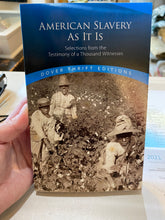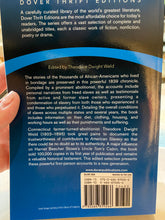Theodore Dwight Weld (1803-1895), a prominent abolitionist and reformer, was born in Hampton, Connecticut. Following a dramatic religious conversion through the evangelism of Charles Grandison Finney, Weld entered Lane Seminary. There he became active in the abolitionist movement and converted many students to the abolitionist cause. When the faculty issued an ultimatum requiring that students cease their abolitionist work, the students protested. Their actions so upset Lane's board of trustees that Weld and fifty other students left the school. Weld continued to agitate for the abolitionist cause and gained prominence in the west. In 1838, Weld married Angelina Grimke, one of a pair of South Carolina sisters who had shunned their aristocratic status to become antislavery and women's rights activists. Later in life, Weld became interested in experimental education and was an administrator at schools for reformers' children. He was also a forceful advocate for libraries and free access to books, aid for southern blacks, and women's suffrage.
Theodore Weld, his wife Angelina Grimke, and her sister Sarah Grimke compiled American Slavery As It Is: Testimony of a Thousand Witnesses, which was published by the American Anti-slavery Society. It was designed to portray the horrors of American Slavery through a collection of first-hand testimonials and personal narratives from both freedmen and whites. The work describes the slave diet, their hours of work and rest, clothing, housing, privations and afflictions. It also includes pro-slavery arguments that the authors refute. American Slavery As It Is was widely distributed and was one of the most influential of the American antislavery tracts.



